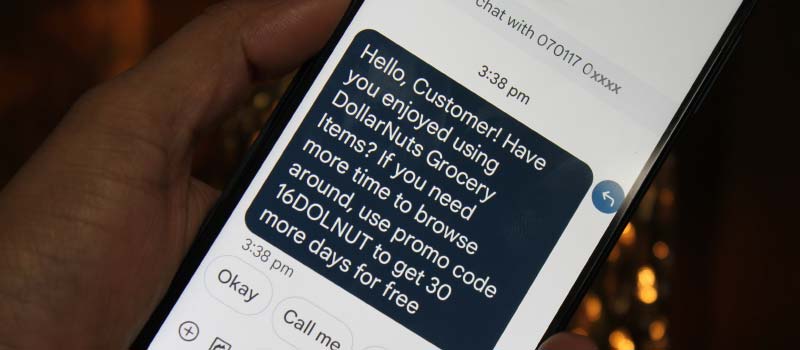Here's a detailed explanation of the factors that determine the number of SMS messages you can send at once:

-
Service Provider Limitations:
Your Bulk SMS service provider may impose certain limitations on the maximum number of SMS messages you can send in a single batch. These limitations can vary based on your subscription plan or the specific terms and conditions of the service.
-
Network Congestion:
The number of SMS messages that can be sent at once can also be influenced by network congestion. If the cellular network is experiencing high traffic or temporary issues, it may slow down the delivery of messages, leading to limitations on simultaneous sending.
-
Message Length:
SMS messages have a character limit of 160 characters per message for standard SMS, or 70 characters for messages containing special characters or Unicode. If your messages exceed these limits, they will be split into multiple SMS messages. The number of messages required to send your content will affect the total number of SMS messages you can send in one go.
-
Sender ID Restrictions:
Some countries or network operators have restrictions on the sender ID used for Bulk SMS messages. For example, they may require specific sender IDs or impose limitations on the number of messages that can be sent with a particular sender ID within a specific time period. These restrictions can impact the number of SMS messages you can send at once.
-
Throughput Capacity:
Bulk SMS providers have systems and infrastructure in place to handle high message volumes. The throughput capacity of their infrastructure determines how many messages can be processed within a given time frame. This capacity can vary based on the provider's infrastructure and the resources allocated to your account.
Delivery Rate of Bulk SMS Messages
The delivery rate of Bulk SMS messages refers to the percentage of SMS messages that are successfully delivered to the intended recipients out of the total number of messages sent. It is an essential metric that measures the effectiveness of your SMS campaigns and the reliability of the Bulk SMS service provider. Here's a detailed explanation of the factors influencing the delivery rate of Bulk SMS messages:

-
Valid Recipient Numbers:
The accuracy and validity of recipient numbers play a crucial role in determining the delivery rate. If you have a high-quality and up-to-date contact list with correct mobile numbers, the chances of successful delivery increase. Invalid or outdated numbers, such as disconnected or wrong numbers, can result in failed deliveries and lower the overall delivery rate.
-
Network Operator Restrictions:
Network operators may impose certain restrictions on SMS delivery, such as rate limits or content filtering. These restrictions can affect the delivery rate, particularly when sending messages to specific networks or countries. It's important to understand and comply with the regulations and guidelines set by network operators to optimize the delivery rate.
-
Message Content:
The content of your SMS messages can also influence the delivery rate. Messages containing prohibited or spam-like content may be flagged by network operators or filtered by spam detection systems, resulting in delivery failures. It's crucial to craft messages that comply with regulations, avoid spam triggers, and provide relevant and valuable information to recipients.
-
DND (Do Not Disturb) Filters:
Some recipients may have activated Do Not Disturb (DND) services, which prevent them from receiving promotional or unsolicited messages. DND filters are implemented by network operators as a measure to protect users' privacy and prevent unwanted messages. The delivery rate may be affected if a significant number of recipients have activated DND.
-
Sender ID Reputation:
The reputation of the sender ID used for Bulk SMS messages can impact the delivery rate. Sender ID reputation is influenced by factors such as previous message delivery rates, user complaints, compliance with regulations, and adherence to best practices. A good sender ID reputation increases the likelihood of successful message delivery.
-
Network Congestion and Temporary Issues:
Network congestion or temporary issues within the cellular network can impact the delivery rate of Bulk SMS messages. High traffic or technical problems may cause delays or failed deliveries. However, reputable Bulk SMS providers usually have mechanisms in place to manage such situations and minimize their impact on delivery rates.
-
Routing and Delivery Infrastructure:
The efficiency and capacity of the Bulk SMS service provider's routing and delivery infrastructure are vital for achieving high delivery rates. Providers with robust systems and partnerships with multiple network operators can optimize routing and handle high message volumes, leading to better delivery rates.
To optimize the delivery rate of your Bulk SMS messages, it is advisable to follow best practices, ensure data accuracy, comply with regulations, and choose a reliable and reputable Bulk SMS service provider. Monitoring delivery rates, analyzing delivery reports, and addressing any issues or concerns promptly can help improve the overall effectiveness of your SMS campaigns.